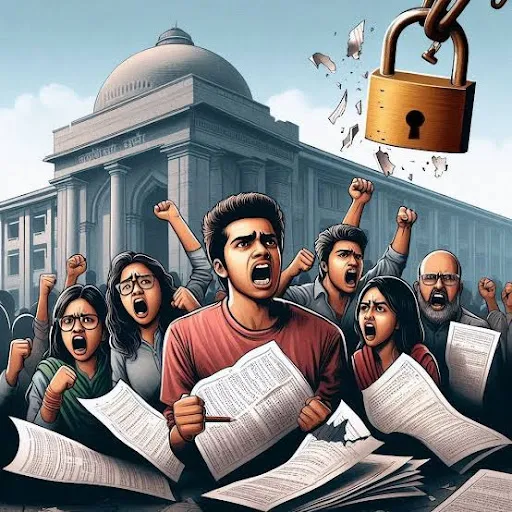An anti-paper leak law is legislation designed to prevent the unauthorized disclosure, leakage, or distribution of exam papers or confidential documents, typically in educational settings or competitive examinations. These laws aim to ensure the integrity and fairness of examinations by implementing strict measures and penalties against individuals or groups involved in leaking question papers.
Key features of anti-paper leak laws might include:
1. **Strict Penalties:** Harsh punishments for those found guilty of leaking exam papers, including fines, imprisonment, or both.
2. **Preventive Measures:** Protocols for secure handling, storage, and transportation of exam papers to prevent unauthorized access.
3. **Investigation and Enforcement:** Establishment of special investigative units or task forces to probe allegations of paper leaks and enforce the law.
4. **Technological Safeguards:** Use of technology to track and secure exam papers, such as digital encryption, watermarks, or secure online examination systems.
5. **Accountability:** Holding not just individuals but also institutions accountable if found complicit in paper leaks.
These laws are enacted to maintain the credibility of educational assessments and ensure that all candidates have a fair and equal opportunity to perform based on their knowledge and skills.
